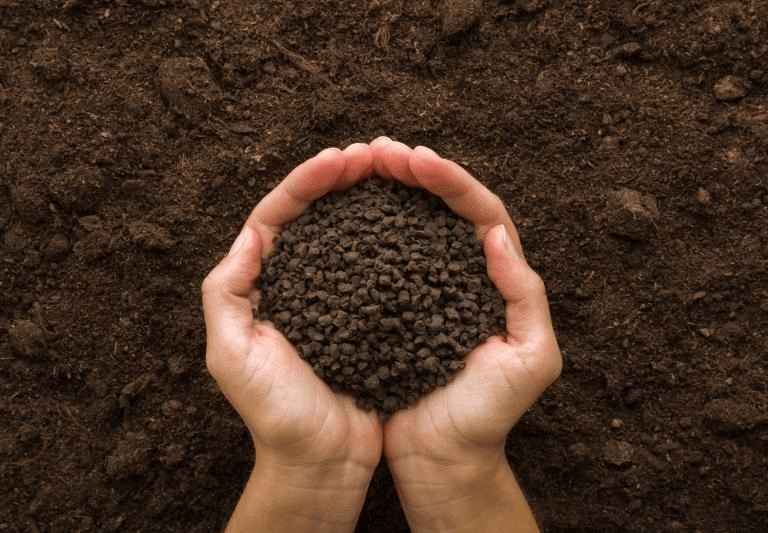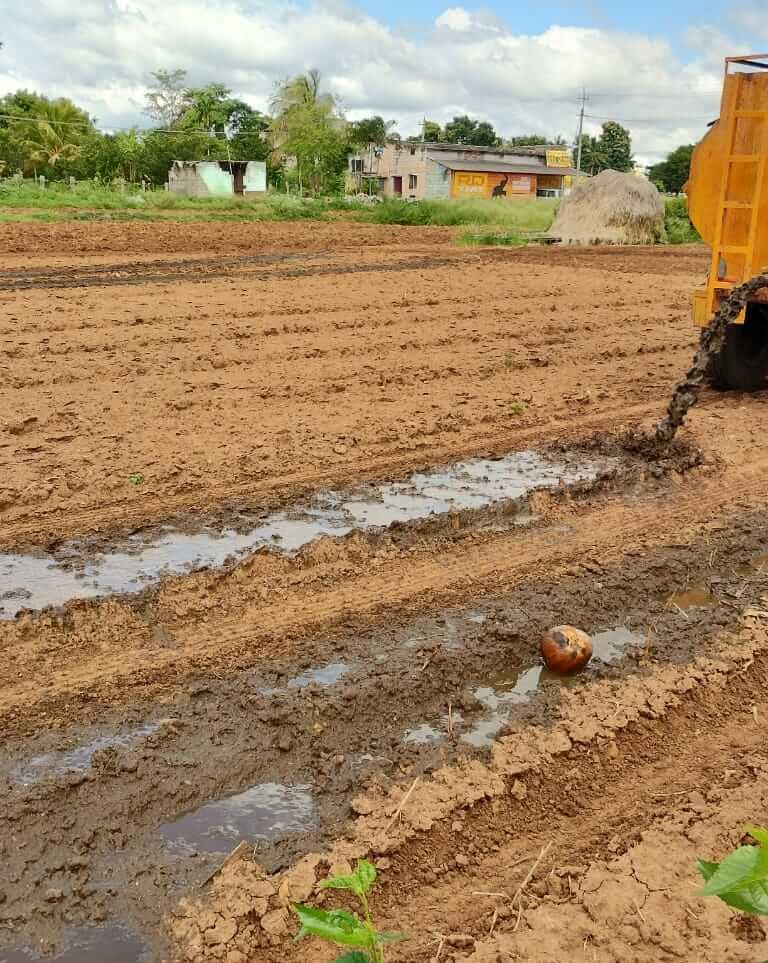

Fermented Organic Manure (FOM)
Fermented Organic Manure (FOM) is a nutrient-rich organic fertilizer produced through the controlled fermentation of biodegradable agricultural and organic waste materials. Using microbial activity under anaerobic or semi-aerobic conditions, organic matter is broken down into a stable, humus-like substance that enhances soil health, fertility, and microbial activity.
FOM is typically a byproduct of processes like anaerobic digestion, which is also used in Compressed Bio Gas (CBG) production. After gas extraction, the remaining slurry—known as digestate—is processed and cured to become Fermented Organic Manure.
Benefits:
Enhances plant growth and yield naturally
Reduces dependence on chemical fertilizers
Promotes carbon sequestration and soil biodiversity
Supports circular economy in agriculture
Safe for long-term soil use
Appearance:
A solid, dark, and earthy compost with a texture similar to traditional manure.
Moisture Content
Total Organic Carbon
Total NPK
30 - 70%
Minimum 15 - 25%
2.5 - 3.0%


Liquid Fermented Organic Manure (LFOM)
Liquid Fermented Organic Manure (LFOM) is a high-quality, nutrient-dense liquid bio-fertilizer made from the controlled fermentation of organic waste materials such as animal dung, crop residues, and food/agricultural waste. The fermentation process is facilitated by beneficial microorganisms under anaerobic or semi-aerobic conditions, breaking down the organic matter into a stable, bioavailable form.
LFOM is rich in essential plant nutrients, beneficial microbes, and organic acids. It serves as an eco-friendly, sustainable alternative to synthetic fertilizers and is particularly effective in improving soil fertility, plant health, and crop productivity. It is often derived as a liquid byproduct from Compressed Bio Gas (CBG) production processes, especially during anaerobic digestion.
Benefits:
Enhances crop yield and quality naturally
Improves soil structure and microbial balance
Increases plant resistance to pests and diseases
Reduces the need for chemical fertilizers and pesticides
Supports organic and sustainable farming practices
Reduces input costs over time while increasing productivity
Appearance:
A liquid, filtered, and concentrated solution ideal for quick and easy application
Moisture Content
Total Organic Carbon
Total NPK
90 - 97%
Minimum 15 - 25%
2.5 - 3.0%
Sustainability
Transforming waste into eco-friendly solutions daily.
contact us
+91 81603 23144
3JHP+Q3, Gadhada Botad Road, NH 51, Tal, Gadhada, Gujarat, India 364765.
© 2025. All rights reserved.
info@renewsphereenergy.in
4th Floor, 24/A, Patel Industrial Estate, Nr Kiran Hospital, Surat, Gujarat, India 395004.
Corporate Address
Plant Address
